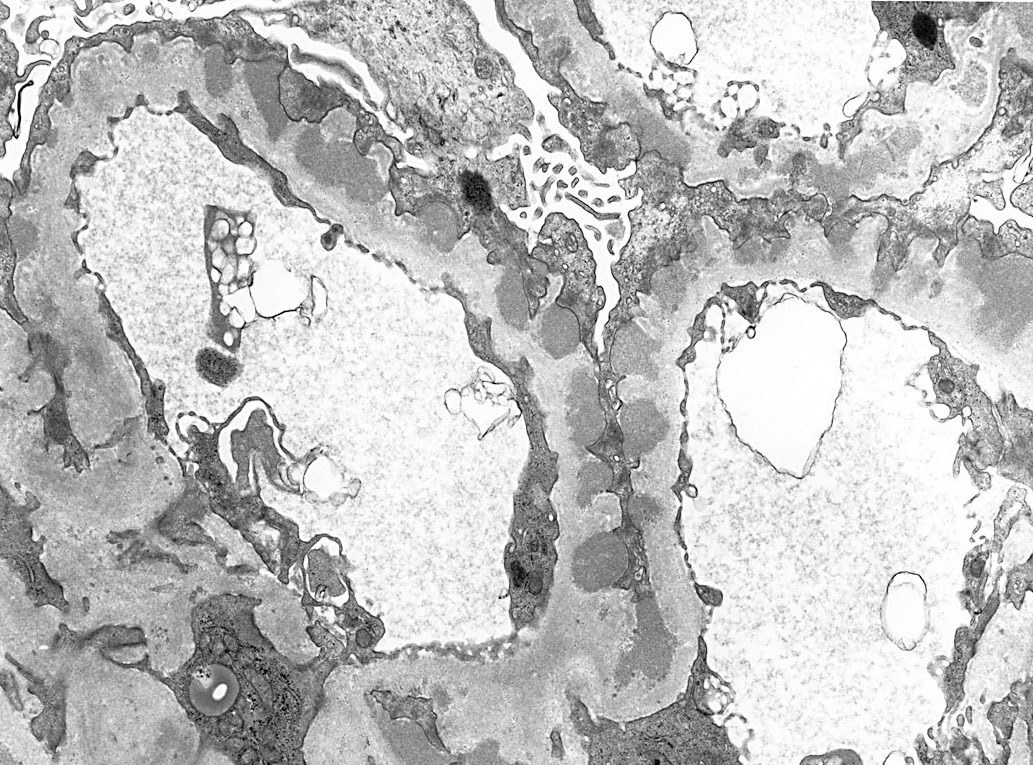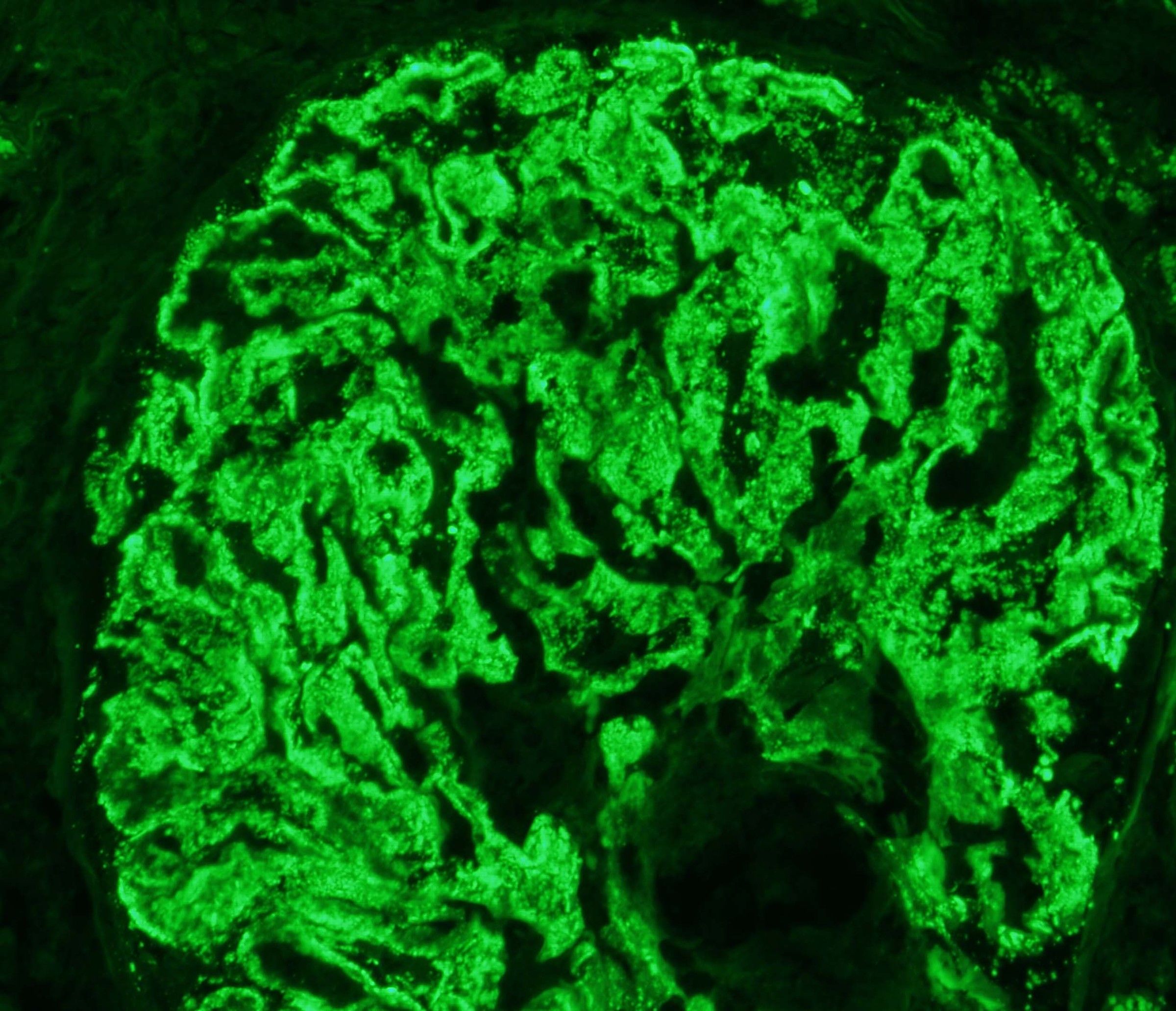
What is membranous glomerulopathy?
Membranous glomerulopathy is a kidney disease that causes protein in the urine (proteinuria).
In membranous glomerulopathy, immune deposits are present in the kidney and cause injury.
What are the signs and symptoms?
The most common signs and symptoms of membranous glomerulopathy are:
- Protein in the urine (proteinuria)
- Swelling of the feet and legs (edema)
What causes membranous glomerulopathy?
Some cases of membranous glomerulopathy have no known cause.
Most cases of membranous glomerulopathy have an identifiable cause.
Known causes include:
- Antibodies against the kidney
- Autoimmune diseases (such as lupus)
- Infections
- Medications and illicit drugs
- Tumors
How is membranous glomerulopathy diagnosed?
A kidney biopsy is the only way to diagnose membranous glomerulopathy because several other kidney diseases produce similar symptoms and laboratory abnormalities.
Why is it important to diagnose membranous glomerulopathy?
Many kidney diseases cause proteinuria but may differ in treatment from membranous glomerulopathy. A diagnosis of membranous glomerulopathy may allow your doctor to identify the cause in your case.
Is additional testing necessary?
Your physician may order tests on urine or blood. Some tests include measuring antibodies against your kidney, like PLA2R and THSD7A. These tests may be used to monitor response to treatment.
What happens to a patient with membranous glomerulopathy?
- Some patients may improve without treatment
- Some patients will respond to treatment
- Some patients will have proteinuria for many years
- Some patients develop renal failure and require dialysis or kidney transplantation
Patient Resource Sheet
Quick note: This post is to be used for informational purposes only and does not constitute medical or health advice. Each person should consult their own doctor with respect to matters referenced. Arkana Laboratories assumes no liability for actions taken in reliance upon the information contained herein.



